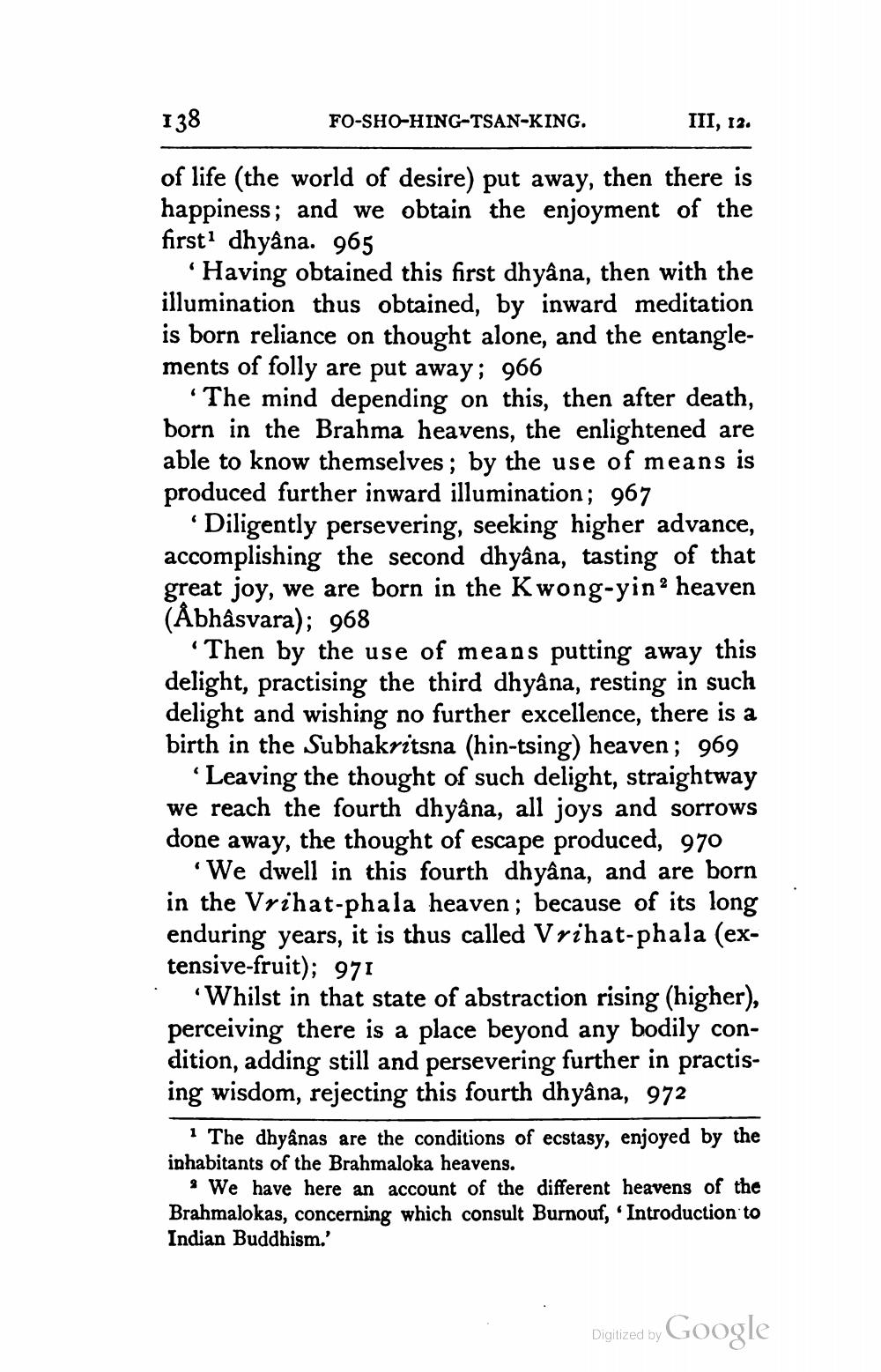________________
138
FO-SHO-HING-TSAN-KING.
III, 12.
of life (the world of desire) put away, then there is happiness; and we obtain the enjoyment of the first1 dhyana. 965
Having obtained this first dhyâna, then with the illumination thus obtained, by inward meditation is born reliance on thought alone, and the entanglements of folly are put away; 966
'The mind depending on this, then after death, born in the Brahma heavens, the enlightened are able to know themselves; by the use of means is produced further inward illumination; 967
'Diligently persevering, seeking higher advance, accomplishing the second dhyâna, tasting of that great joy, we are born in the Kwong-yin? heaven (Åbhâsvara); 968
Then by the use of means putting away this delight, practising the third dhyâna, resting in such delight and wishing no further excellence, there is a birth in the Subhakritsna (hin-tsing) heaven; 969
'Leaving the thought of such delight, straightway we reach the fourth dhyâna, all joys and sorrows done away, the thought of escape produced, 970
We dwell in this fourth dhyâna, and are born in the Vrihat-phala heaven; because of its long enduring years, it is thus called Vrihat-phala (extensive-fruit); 971
Whilst in that state of abstraction rising (higher), perceiving there is a place beyond any bodily condition, adding still and persevering further in practising wisdom, rejecting this fourth dhyâna, 972
1 The dhyânas are the conditions of ecstasy, enjoyed by the inhabitants of the Brahmaloka heavens.
* We have here an account of the different heavens of the Brahmalokas, concerning which consult Burnouf, Introduction to Indian Buddhism.'
Digitized by Google




